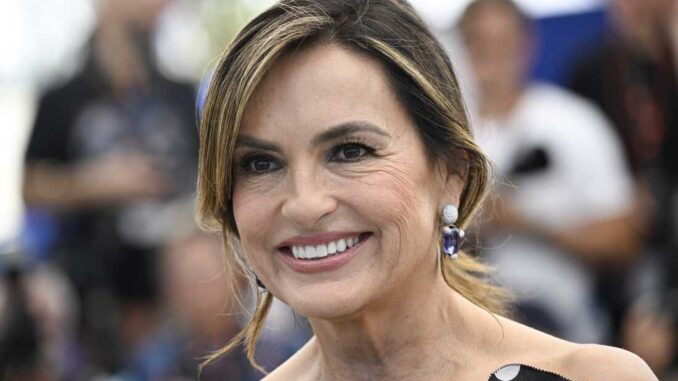
From Survivor Stories to Screen Trauma: Mariska Hargitay on SVU's Deep Emotional Impact
For over two decades, Mariska Hargitay has inhabited the character of Olivia Benson, a tenacious and empathetic detective on NBC’s Law & Order: Special Victims Unit. More than just a fictional role, Benson has become a symbol of resilience, a beacon of hope for survivors of sexual assault and abuse. Hargitay, through her nuanced performance and profound commitment to the subject matter, has not only brought these difficult narratives to the forefront but has also created a space where survivors feel seen, heard, and validated. This connection, however, transcends the purely performative, deeply impacting Hargitay herself, forging a bridge between survivor stories and the inevitable screen trauma that comes with portraying such intensely sensitive material.
The success of SVU lies not just in its procedural format, but in its willingness to confront the uncomfortable truths surrounding sexual violence. Hargitay, as Benson, embodies the complexities of navigating this world. She is fierce in her pursuit of justice, yet compassionate and deeply empathetic towards victims. This commitment to authenticity is born from the real-life interactions Hargitay has had with survivors over the years. Through her non-profit organization, the Joyful Heart Foundation, she has provided support and advocacy, listening to countless stories of trauma and resilience. These narratives, etched in her mind and heart, inform her portrayal of Benson, imbuing her with a depth of understanding that resonates powerfully with viewers.
The emotional impact of these survivor stories extends far beyond the screen. Hargitay has spoken candidly about the weight of carrying the burden of so much pain and suffering. Playing Benson requires her to confront the darkest aspects of human nature, to delve into the psychological aftermath of trauma, and to witness the fragility of the human spirit. She absorbs the stories, the emotions, the raw vulnerability of survivors, channeling them into her performance. This process, while contributing to the show’s authenticity, inevitably leaves its mark.
The concept of "screen trauma" – the emotional and psychological impact of repeatedly portraying traumatic events – is a real concern for actors in roles like Hargitay's. Witnessing and embodying such violence vicariously can lead to secondary trauma, characterized by symptoms such as anxiety, intrusive thoughts, and emotional exhaustion. Hargitay has acknowledged the challenges of separating her professional life from her personal life, admitting that the lines often blur. She relies on therapy, meditation, and strong personal relationships to cope with the emotional toll of the show. These self-care practices become essential tools for managing the screen trauma and preventing burnout.
Furthermore, Hargitay's commitment extends beyond the purely emotional realm. She understands the responsibility that comes with portraying such sensitive subject matter. She works closely with writers and consultants to ensure accuracy and sensitivity in the portrayal of trauma. She advocates for policies and legislation that protect survivors and hold perpetrators accountable. She utilizes her platform to raise awareness about the prevalence of sexual violence and to challenge societal attitudes that perpetuate it. In doing so, she elevates SVU from a simple crime drama to a powerful vehicle for social change.
The journey from survivor stories to screen trauma is a complex and demanding one. Mariska Hargitay, as Olivia Benson, has navigated this path with grace, dedication, and unwavering commitment. She has transformed a fictional character into a symbol of hope and empowerment, fostering a dialogue about sexual violence that is both necessary and long overdue. The emotional impact on Hargitay is undeniable, highlighting the inherent risks and challenges that actors face when portraying traumatic experiences. Yet, she continues to champion the cause, proving that even in the darkest corners of human experience, empathy, resilience, and the pursuit of justice can prevail. Her legacy as Olivia Benson will undoubtedly extend far beyond the television screen, inspiring generations to fight for a safer and more compassionate world for all survivors.
